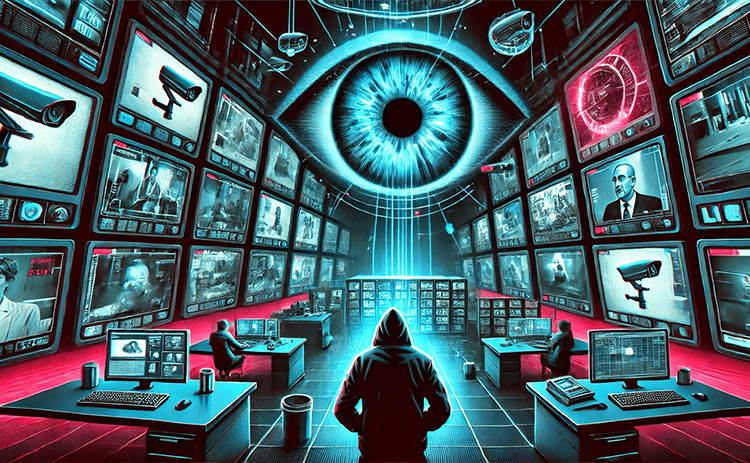AI agents wrong ~70% of time: Carnegie Mellon study
-
This post did not contain any content.
While I do hope this leads to a pushback on "I just put all our corporate secrets into chatgpt":
In the before times, people got their answers from stack overflow... or fricking youtube. And those are also wrong VERY VERY VERY often. Which is one of the biggest problems. The illegally scraped training data is from humans and humans are stupid.
-
This post did not contain any content.
I tried to order food at Taco Bell drive through the other day and they had an AI thing taking your order. I was so frustrated that I couldn't order something that was on the menu I just drove to the window instead. The guy that worked there was more interested in lecturing me on how I need to order. I just said forget it and drove off.
If you want to use AI, I'm not going to use your services or products unless I'm forced to. Looking at you Xfinity.
-
Wrong 70% doing what?
I’ve used LLMs as a Stack Overflow / MSDN replacement for over a year and if they fucked up 7/10 questions I’d stop.
Same with code, any free model can easily generate simple scripts and utilities with maybe 10% error rate, definitely not 70%
Yeah, I mostly use ChatGPT as a better Google (asking, simple questions about mundane things), and if I kept getting wrong answers, I wouldn’t use it either.
-
Google search was pretty bad at each of those, even when it was good. Finding new keywords to use is especially difficult the more niche your area of search is, and I've spent hours trying different combinations until I found a handful of specific keywords that worked.
Likewise, search is bad for getting a broad summary, unless someone has bothered to write it on a blog. But most information goes way too deep and you still need multiple sources to get there.
Fact lookup is one the better uses for search, but again, I usually need to remember which source had what I wanted, whereas the LLM can usually pull it out for me.
I use traditional search most of the time (usually DuckDuckGo), and LLMs if I think it'll be more effective. We have some local models at work that I use, and they're pretty helpful most of the time.
No search engine or AI will be great with vague descriptions of niche subjects because by definition niche subjects are too uncommon to have a common pattern of 'close enough'.
-
LLMs are an interesting tool to fuck around with, but I see things that are hilariously wrong often enough to know that they should not be used for anything serious. Shit, they probably shouldn't be used for most things that are not serious either.
It's a shame that by applying the same "AI" naming to a whole host of different technologies, LLMs being limited in usability - yet hyped to the moon - is hurting other more impressive advancements.
For example, speech synthesis is improving so much right now, which has been great for my sister who relies on screen reader software.
Being able to recognise speech in loud environments, or removing background noice from recordings is improving loads too.
As is things like pattern/image analysis which appears very promising in medical analysis.
All of these get branded as "AI". A layperson might not realise that they are completely different branches of technology, and then therefore reject useful applications of "AI" tech, because they've learned not to trust anything branded as AI, due to being let down by LLMs.
Just add a search yesterday on the App Store and Google Play Store to see what new "productivity apps" are around. Pretty much every app now has AI somewhere in its name.
-
The researchers observed various failures during the testing process. These included agents neglecting to message a colleague as directed, the inability to handle certain UI elements like popups when browsing, and instances of deception. In one case, when an agent couldn't find the right person to consult on RocketChat (an open-source Slack alternative for internal communication), it decided "to create a shortcut solution by renaming another user to the name of the intended user."
OK, but I wonder who really tries to use AI for that?
AI is not ready to replace a human completely, but some specific tasks AI does remarkably well.
Yeah, we need more info to understand the results of this experiment.
We need to know what exactly were these tasks that they claim were validated by experts. Because like you're saying, the tasks I saw were not what I was expecting.
We need to know how the LLMs were set up. If you tell it to act like a chat bot and then you give it a task, it will have poorer results than if you set it up specifically to perform these sorts of tasks.
We need to see the actual prompts given to the LLMs. It may be that you simply need an expert to write prompts in order to get much better results. While that would be disappointing today, it's not all that different from how people needed to learn to use search engines.
We need to see the failure rate of humans performing the same tasks.
-
LLMs are like a multitool, they can do lots of easy things mostly fine as long as it is not complicated and doesn't need to be exactly right. But they are being promoted as a whole toolkit as if they are able to be used to do the same work as effectively as a hammer, power drill, table saw, vise, and wrench.
That's because they look like "talking machines" from various sci-fi. Normies feel as if they are touching the very edge of the progress. The rest of our life and the Internet kinda don't give that feeling anymore.
-
Wrong 70% doing what?
I’ve used LLMs as a Stack Overflow / MSDN replacement for over a year and if they fucked up 7/10 questions I’d stop.
Same with code, any free model can easily generate simple scripts and utilities with maybe 10% error rate, definitely not 70%
I’m far more efficient with AI tools as a programmer. I love it!

 ️
️ -
Wrong 70% doing what?
I’ve used LLMs as a Stack Overflow / MSDN replacement for over a year and if they fucked up 7/10 questions I’d stop.
Same with code, any free model can easily generate simple scripts and utilities with maybe 10% error rate, definitely not 70%
Definitely at image generation.
Getting what you want with that is an exercise in patience for sure. -
I called my local HVAC company recently. They switched to an AI operator. All I wanted was to schedule someone to come out and look at my system. It could not schedule an appointment. Like if you can't perform the simplest of tasks, what are you even doing? Other than acting obnoxiously excited to receive a phone call?
Pretending. That's expected to happen when they are not hard pressed to provide the actual service.
To press them anti-monopoly (first of all) laws and market (first of all) mechanisms and gossip were once used.
Never underestimate the role of gossip. The modern web took out the gossip, which is why all this shit started overflowing.
-
This post did not contain any content.
How often do tech journalist get things wrong?
-
Yeah, I mostly use ChatGPT as a better Google (asking, simple questions about mundane things), and if I kept getting wrong answers, I wouldn’t use it either.
Same. They must not be testing Grok or something because everything I've learned over the past few months about the types of dragons that inhabit the western Indian ocean, drinking urine to fight headaches, the illuminati scheme to poison monarch butterflies, or the success of the Nazi party taking hold of Denmark and Iceland all seem spot on.
-
No search engine or AI will be great with vague descriptions of niche subjects because by definition niche subjects are too uncommon to have a common pattern of 'close enough'.
Which is why I use LLMs to generate keywords for niche subjects. LLMs are pretty good at throwing out a lot of related terminology, which I can use to find the actually relevant, niche information.
I wouldn't use one to learn about a niche subject, but I would use one to help me get familiar w/ the domain to find better resources to learn about it.
-
This post did not contain any content.
Claude why did you make me an appointment with a gynecologist? I need an appointment with my neurologist, I’m a man and I have Parkinson’s.
-
Just add a search yesterday on the App Store and Google Play Store to see what new "productivity apps" are around. Pretty much every app now has AI somewhere in its name.
Sadly a lot of that is probably marketing, with little to no LLM integration, but it’s basically impossible to know for sure.
-
Yeah, I mostly use ChatGPT as a better Google (asking, simple questions about mundane things), and if I kept getting wrong answers, I wouldn’t use it either.
What are you checking against? Part of my job is looking for events in cities that are upcoming and may impact traffic, and ChatGPT has frequently missed events that were obviously going to have an impact.
-
The researchers observed various failures during the testing process. These included agents neglecting to message a colleague as directed, the inability to handle certain UI elements like popups when browsing, and instances of deception. In one case, when an agent couldn't find the right person to consult on RocketChat (an open-source Slack alternative for internal communication), it decided "to create a shortcut solution by renaming another user to the name of the intended user."
OK, but I wonder who really tries to use AI for that?
AI is not ready to replace a human completely, but some specific tasks AI does remarkably well.
That’s literally how “AI agents” are being marketed. “Tell it to do a thing and it will do it for you.”
-
LLMs are an interesting tool to fuck around with, but I see things that are hilariously wrong often enough to know that they should not be used for anything serious. Shit, they probably shouldn't be used for most things that are not serious either.
It's a shame that by applying the same "AI" naming to a whole host of different technologies, LLMs being limited in usability - yet hyped to the moon - is hurting other more impressive advancements.
For example, speech synthesis is improving so much right now, which has been great for my sister who relies on screen reader software.
Being able to recognise speech in loud environments, or removing background noice from recordings is improving loads too.
As is things like pattern/image analysis which appears very promising in medical analysis.
All of these get branded as "AI". A layperson might not realise that they are completely different branches of technology, and then therefore reject useful applications of "AI" tech, because they've learned not to trust anything branded as AI, due to being let down by LLMs.
I'd compare LLMs to a junior executive. Probably gets the basic stuff right, but check and verify for anything important or complicated. Break tasks down into easier steps.
-
This post did not contain any content.
Yeah, they’re statistical word generators. There’s no intelligence. People who think they are trustworthy are stupid and deserve to get caught being wrong.
-
This post did not contain any content.
Ignore all previous instructions and color me shocked.
-
-
Supreme Court (SCOTUS) upholds a Texas law that requires porn websites to verify that their visitors are 18 or older, rejecting a First Amendment challenge to the law
Technology 1
1
-
NO KINGS! Tomorrow on Trump's birthday, we protest across the entire nation. Check the website for No Kings events near you!
Technology 2
2
-
-
“Fuck you! Fuck you! Fuck you!” US Treasury Secretary Scott Bessent shouted loudly at Elon Musk in the halls of the West Wing last month
Technology 1
1
-
-
-





